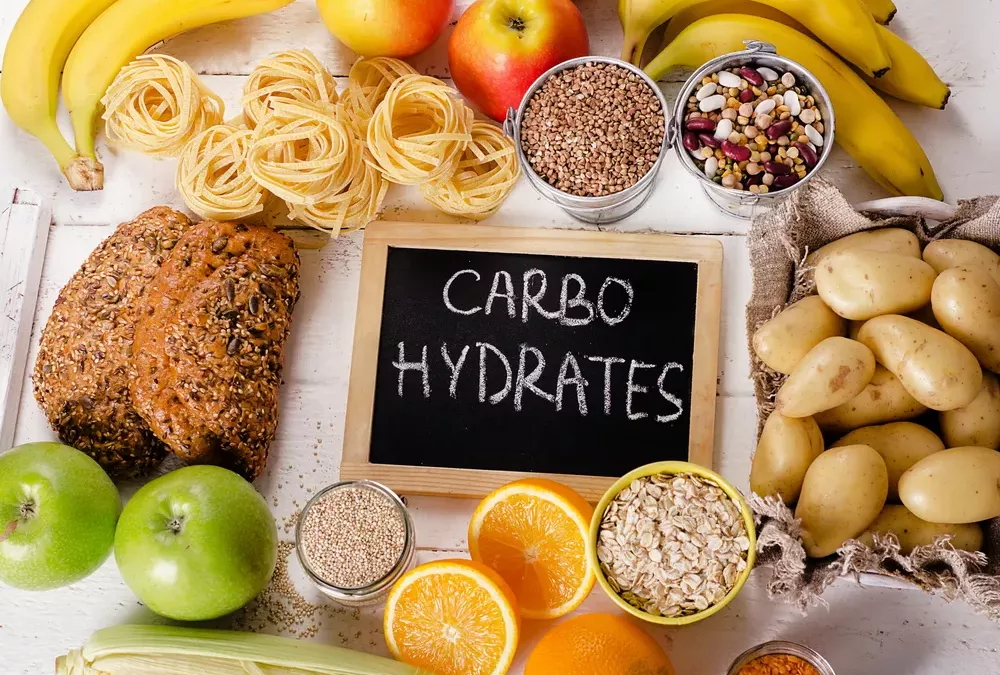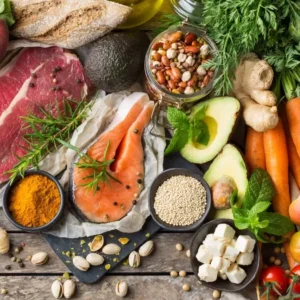Carbohydrates are important particles in our balance and our diet. Long accused of causing weight gain or of being linked to obesity or overweight, they actually have a real role in our body and in particular for weight loss and maintenance. These carbohydrates, or even carbohydrates, are present in many foods in our daily lives.
Carbohydrates under the microscope
Carbohydrate refers to the sugar molecule. This is the old name given to carbohydrates, of which simple carbohydrates and complex carbohydrates are distinguished.
Their role in health
Carbohydrates are an essential source of energy. Our needs are also very important because they must cover half of our daily energy intake. Their roles are multiple:
- Energy role : 1g of carbohydrate, that is to say carbohydrates, provides 4 calories. When eating, they turn into glucose and form fuel for certain cells in the body.
- Role related to blood sugar : they help maintain a stable blood sugar level and avoid hypo or hyperglycemia.
- Role on appetite and digestion : complex carbohydrates allow us to achieve satiety and to be satisfied in the long term. They also allow the maintenance and proper functioning of the gastrointestinal system.
- Role on sleep : the digestion of carbohydrates releases tryptophan into the body. Tryptophan is an amino acid precursor of serotonin and melatonin, which are substances that promote sleep.
- Constitutional role : certain carbohydrates are part of the composition of fundamental tissues of the body such as cartilage, nucleic acids or even mucus.
- Reserve role: part of the glucose present in the blood is stored in the liver and constitutes a “reservoir” of energy easily available to our body when needed.
Our carbohydrate needs
- Simple carbohydrates
Simple carbohydrates include glucose, fructose and galactose. They can come together and form sucrose, otherwise called “table sugar”, lactose (milk sugar) or maltose. These carbohydrates are made up of one or two molecules. They can therefore be present naturally in foods or added. They provide a sweet flavor. This category of carbohydrate is also called fast sugar. They have the effect of greatly increasing blood sugar levels.
- Complex carbohydrates
Complex carbohydrates are made up of a more complex chain of sugars than simple carbohydrates. Unlike them, they are absorbed very slowly by the body. It does not have a sweet flavor. They are also called slow sugars.
- Energy needs
For an individual whose energy needs are around 2000 Kcal/day, carbohydrate intake should be around 50-55% or 1000 Kcal on average. This represents 250 g of carbohydrates. These carbohydrates must mainly be provided by slow sugars. Fast sugars can represent a maximum of 5 to 10% or 100 to 200 Kcal which represents approximately 25 g to 50 g of fast sugars.
When we ingest carbohydrates, they are transformed more or less quickly into glucose, an essential fuel for the body’s cells. Brain cells have a glucose requirement of approximately 140 g per day. Glucose is either used right away or it can be stored as glycogen in the liver and muscles for future use.
The consumption of carbohydrates is therefore essential by limiting the intake of simple carbohydrates and favoring a diet rich in complex carbohydrates.
 Receive every day
Receive every day
advice from our experts
to take care of you

Carbohydrate sources
Carbohydrate source foods include:
Starchy foods
Pasta, rice, bulgur, quinoa, flour, bread, cereals, potatoes, sweet potatoes, barley, semolina, corn, wheat and also all legumes such as lentils, red beans, split peas, flageolet beans, chickpeas… This family of foods mainly provides complex carbohydrates. An average portion is 150 g of cooked cereals or 40 g raw, 90 g of bread or even 3 potatoes.
The fruits
They are mainly a source of simple carbohydrates and fructose. It’s all a question of equivalence. It is recommended to consume 2 to 3 servings of fruit per day and one serving: 1 apple or 1 pear or 1 peach or 1 orange or 2 kiwis or 2 plums or ¼ melon or 2 mandarins or 2 clementines or 1 bowl of red fruits or 3 slices of pineapple or watermelon or 12 plum plums or 10 lychees or ½ grapefruit or 2 to 3 apricots or ½ mango or 1 compote without added sugar or 1 glass of 100% pure fruit juice or ½ banana or 10 cherries or 12 grapes or 2 figs.
Dairy products
Yogurt, cottage cheese, milk, petit-suisse which naturally contain lactose and therefore quick sugar.
Sweet products
Sugar, chocolate, honey, jam, ice cream, cakes, biscuits etc. which mostly contain sucrose, which is also a fast sugar.
The link with weight
Carbohydrates play an important role in maintaining a healthy weight. They simply help limit feelings of hunger, irresistible cravings, drops in energy or severe fatigue, lack of concentration, sleep problems or other parameters that can prevent reaching and maintaining a weight of shape.
Excess carbohydrates
During the day, this excess carbohydrate can have a harmful effect. If the consumption of carbohydrates, whether slow or fast, is too great in relation to needs and expenses, the quantity stored will be much greater and not used. This can therefore lead to weight gain and particularly fat mass.
A lack of energy
A lack of energy can, contrary to popular belief, also lead to weight gain. If the necessary energy is not there, the excess of other nutrients, that is to say lipids and proteins, will be stored to provide the energy necessary for the proper functioning of our body. For good weight loss, the quantity of carbohydrates consumed is therefore an important parameter. It is important not to eliminate them but not to consume them in excess. It’s all about balance.
Each person has different needs. Most of the time, it is advisable to consume carbohydrates at each meal and limit fruit intake to 2-3 servings and dairy products to 2-3 per day. This consumption covers the needs for fast sugars. A professional such as a dietician or nutritionist can help you understand your nutritional needs and how to meet them.
Chemical property
Carbohydrates are biomolecules composed of carbon, hydrogen and oxygen. Their chemical formulas all derive from the formula Cn(H2O)n.
Carbohydrates can be classified as:
- Simple carbohydrates, that is to say fast sugars including monosaccharides and disaccharides;
- Complex carbohydrates, i.e. slow sugars including oligosaccharides and polysaccharides.
Was this article useful to you?














